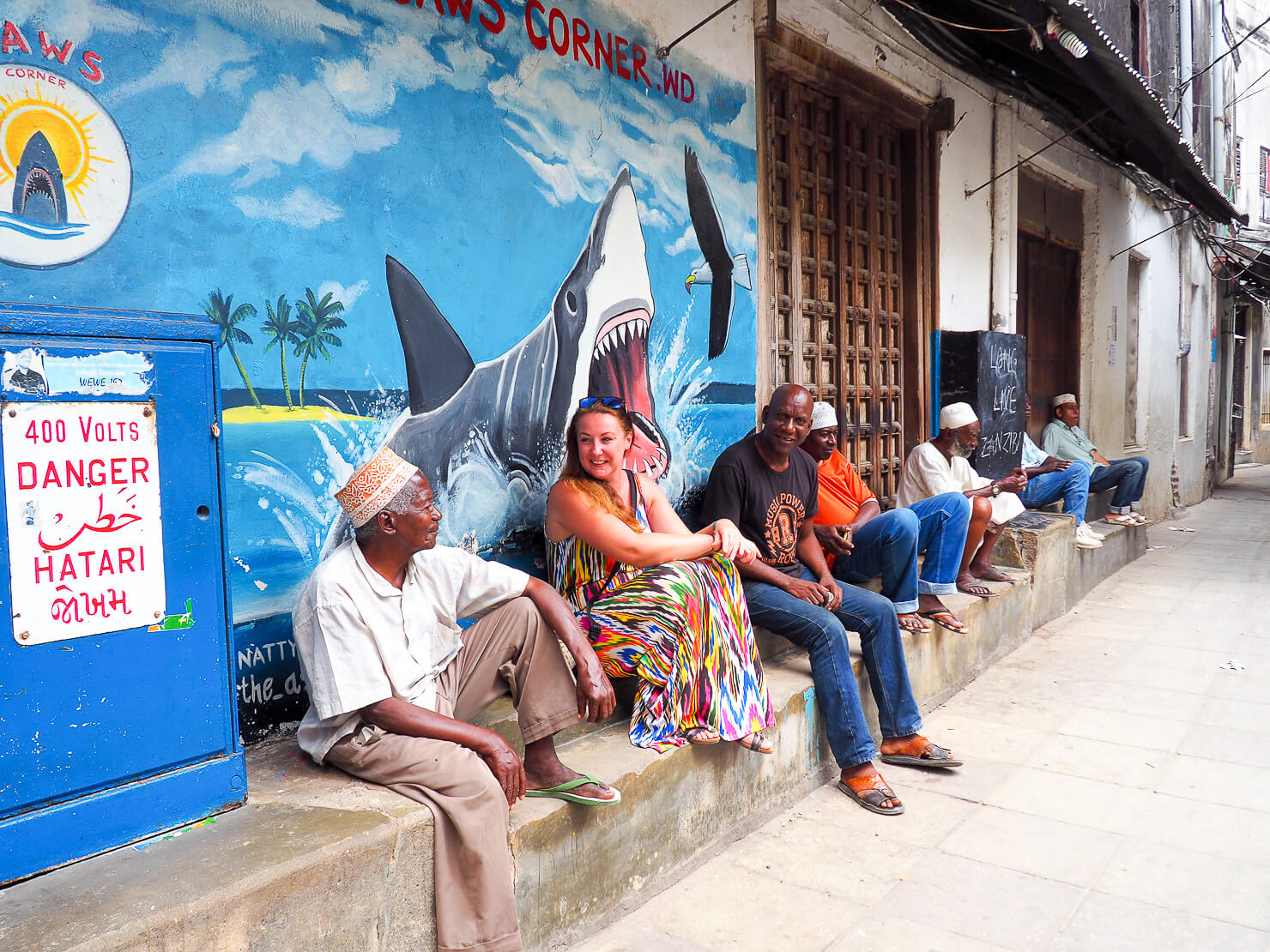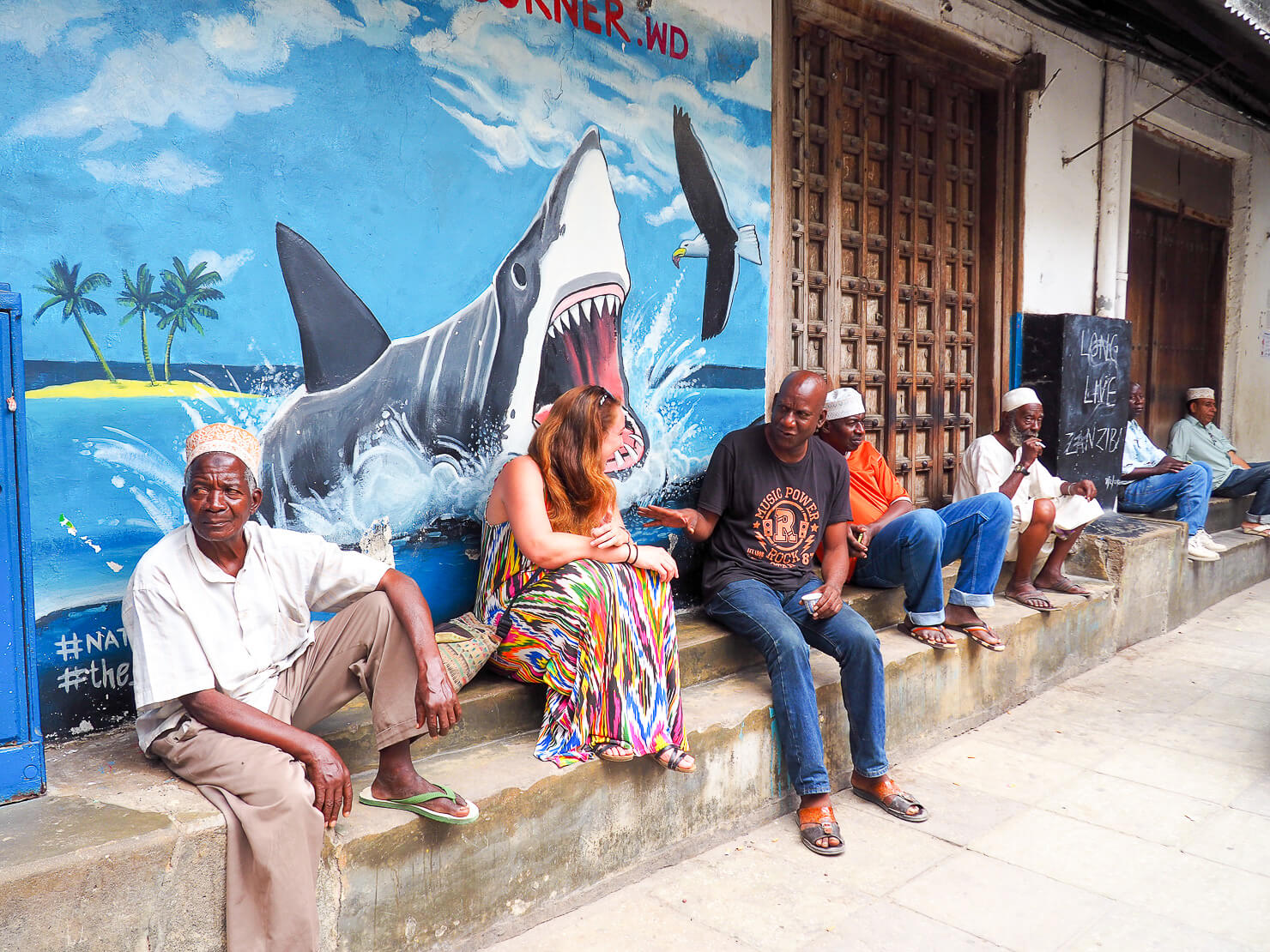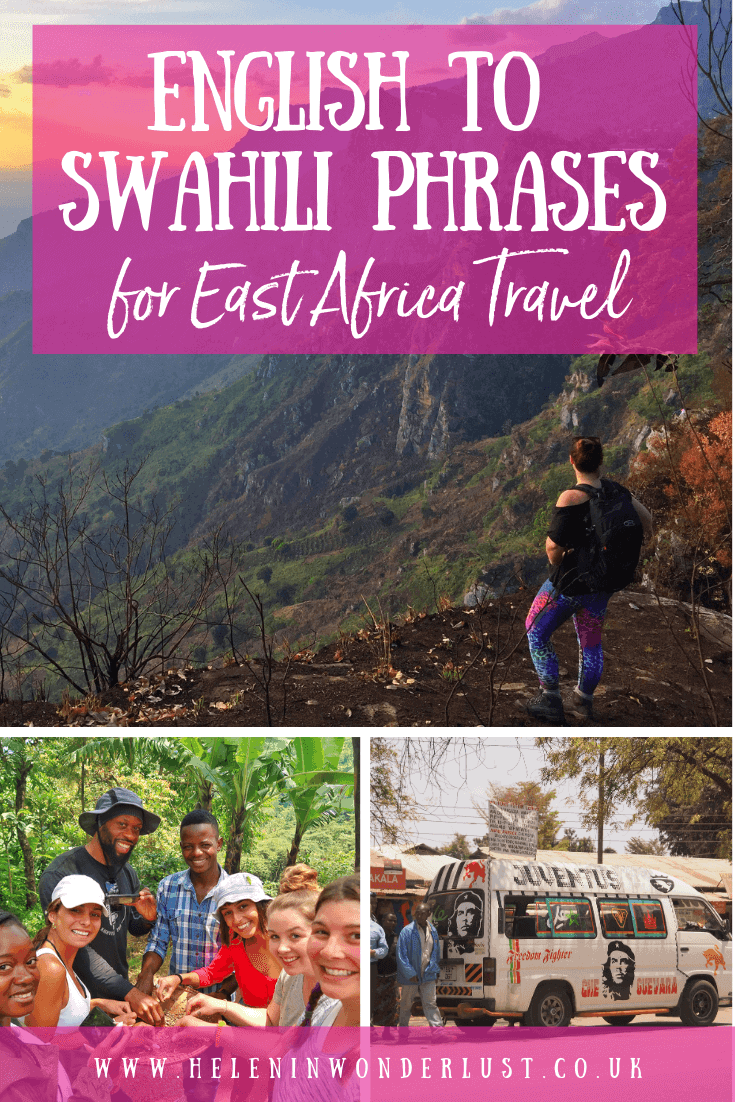
If you’re travelling in East Africa, Swahili is a useful language to know.
Many people speak English, but knowing a bit of Swahili will go a long way and earn you a lot of respect from the locals.
Swahili is a really beautiful language and pretty easy to pick up the basics. It’s a bit like an easier, more flowy version of Arabic, invented to help the Arabic traders communicate with the Bantu-speaking Africans along the East African (Swahili) coast.
Swahili is mostly spoken in Tanzania and Zanzibar, and to a lesser degree in Kenya, as well as some parts of Uganda, the DRC, and the surrounding countries.
The ‘best’ Swahili is spoken in Tanzania and Zanzibar (East Africans talk about this often). In Kenya, more ‘pure’ Swahili is spoken in the coastal regions and Lamu, whilst further inland and in Nairobi, they often mix English words in, so the Swahili spoken there is called ‘Sheng’.
There’s a phrase… “Swahili was born in Tanzania, got sick in Kenya, died in Uganda and was buried in Congo’. Basically the further away from Tanzania you get, the worse grammatically the Swahili tends to be.
Kenyans will often use some of the words in a slightly different context to the Tanzanians, or mix in a bit of English. This is called Sheng.
However Tanzanian Swahili is the purest form of the language.
So I wanted to share some of my favourite Swahili words and phrases, translated from English to Swahili.
Generally, Swahili words are pronounced as they look. “Habari gani?” which means “How are you?” is pronounced “ha-bar-ree gan-ee?”
And the emphasise of the word/phrase is usually on the second to last syllable. In the phrase “Habari gani?” the emphasis would be on the “bar”. Swahili people often roll their R’s too.
If the word starts with an M or N followed by a consonant (ie. Mzuri/Nzuri) the M pronounced like a very short mm, like when you are about to hum or the N would sound like a very short nn or un – kind of like you are trying to say the letter N, but without opening your mouth and keeping your tongue at the top behind your top teeth.
Seems complicated, but once you start practicing and hearing it in real life, you’ll pick it up in no time! Don’t be shy, East Africans will love that you are trying and will teach you Swahili at any opportunity.
The Most Useful English to Swahili Words & Phrases for Travel in East Africa
English to Swahili Introductions/Greetings & Responses
- Jambo/Hujambo Hello
- Sijambo I’m fine/I am well
- Niaji Hello (informal)
- Mambo/Mambo vipi How are you doing/what’s up? (very informal, but used more often)
- Poa Cool or I’m cool
- Safi Fine
- Freshi Fresh
- Habari or habari yako? How are you?
- Habari gani? What news/how are you? (common greeting)
- Nzuri/Mzuri I’m good (In Tanzania they tend to say Nzuri and Mzuri in Kenya)
- Nzuri/Mzuri sana Very good
- Niko salama, asante. Na wewe? I am fine , thank you. And you?
- Shikamoo Respectful greetings (you would use this to someone older than you – children may use this towards you)
- Marahaba Thank you for your respectful greetings (the reply to ‘shikamo’)
- Habari za asubuhi Good morning
- Habari za mchana Good afternoon
- Usiku mwema Goodnight
- Jina lako nani? What is your name?
- Jina langu ni or Mimi naitwa… My name is…
- Ninafuraha kukutana nawe Nice to meet you
- Nafurahi kukuona I am happy to see you
- Unatoka wapi? Where are you from?
- Natokea… I’m from…
- Kwaheri Goodbye
- Tutaonana baadaye (or just badaaye) See you later
- Tutaonana kesho See you tomorrow
- Tuonane kesho Let’s see each other tomorrow
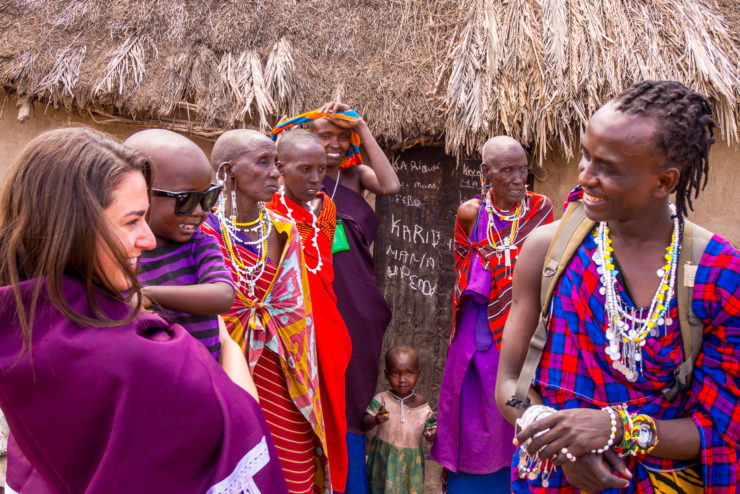
English to Swahili Pleasantries & Responses
- Asante Thank you
- Asante sana Thank you very much
- Karibu Welcome
- Karibu sana You are welcome
- Karibuni Welcome (when there’s more than 1 person)
- Lala salaama Goodnight or peaceful sleep
- Samahani I am sorry
- Niwie radhi Excuse me
- Tafadhali Please (although people don’t really use please that much)
- Pole Sorry (if someone says they are ill you would say ‘pole’ or ‘pole sana’ to sympathize)
- Pose sana Very sorry
- Ndiyo/Ndio Yes
- Hapana No
- Sawa Ok
- Hapana asante No thank you
- Sitaki I don’t need
- Hakuna matata No worries
- Hamna shida No problem
- Naelewa I understand
- Sielewi I don’t understand
- Naweza kuchukua picha yako? Can I take your picture?
- Naomba kupiga picha? May I take pictures?
- Unaongea Kiingereza?/ Unasema Kiingereza? Do you speak English?
- Samahani, unaweza ongea Kiingereza? Excuse me, do you speak English? (formal)
- La, siongei Kiingereza No, I don’t speak English
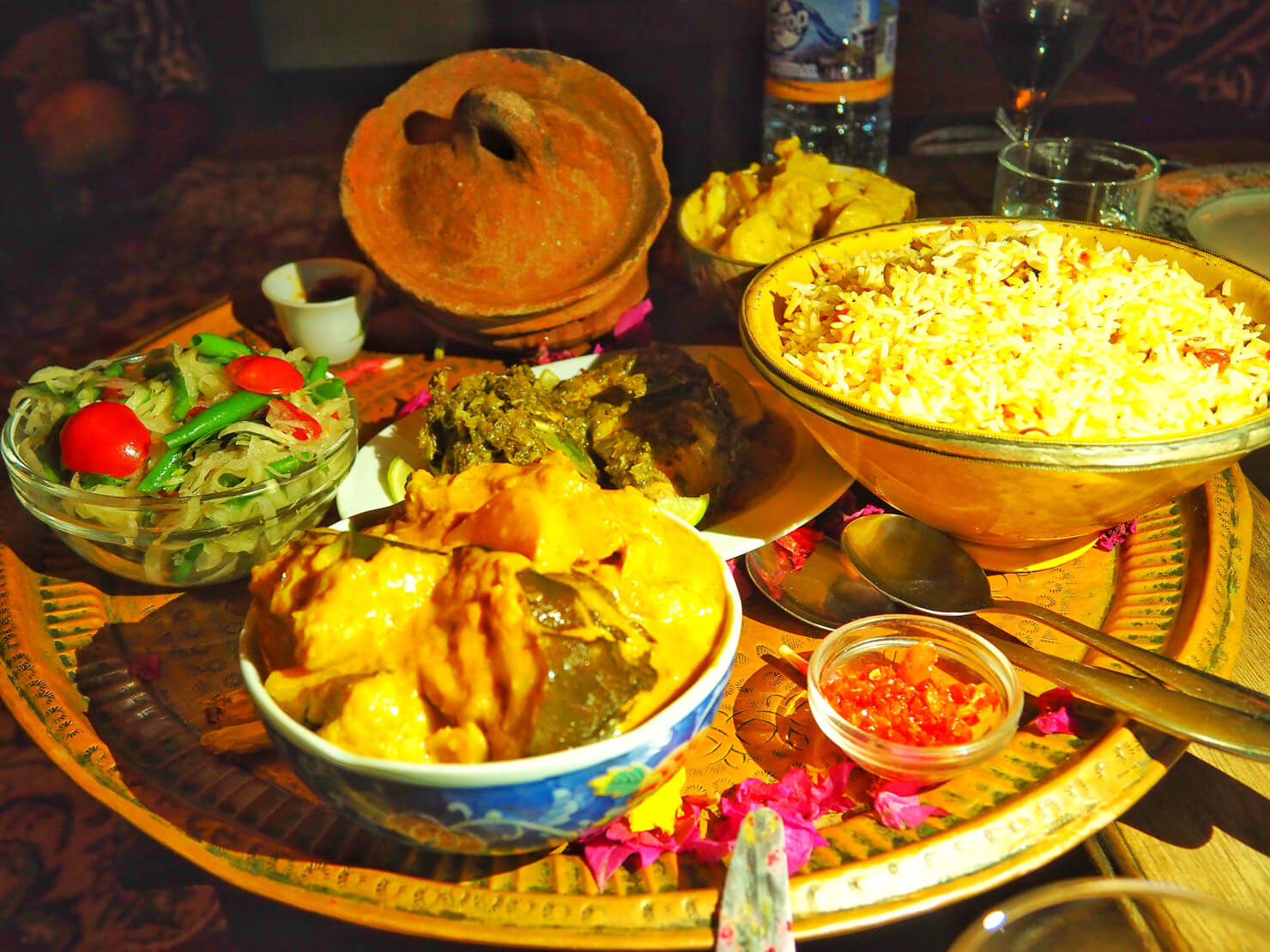
English to Swahili Words for Food & Drink
- Maji Water
- Maji ya kunywa Drinking water
- Kahawa Coffee
- Chai Tea
- Bia Beer
- Kuku Chicken
- Nyama Meat
- Nyama choma Roast meat
- Vegetables Mbogo
- Samaki Fish
- Wali Rice
- Supu Soup
- Baridi Cold (useful when asking for a beer/soda/water ie. “maji baridi”)
- Mimi ni mboga I’m a vegetarian
- Hakuna nyama No meat
- Hakuna maziwa No dairy
- Hakuna gluten No gluten
- Hakuna karanga No nuts (but just be aware that nuts are commonly used in cooking in East Africa)
- Mimi ni mzio wa… I’m allergic to…
- Siwezi kula… I cannot eat…
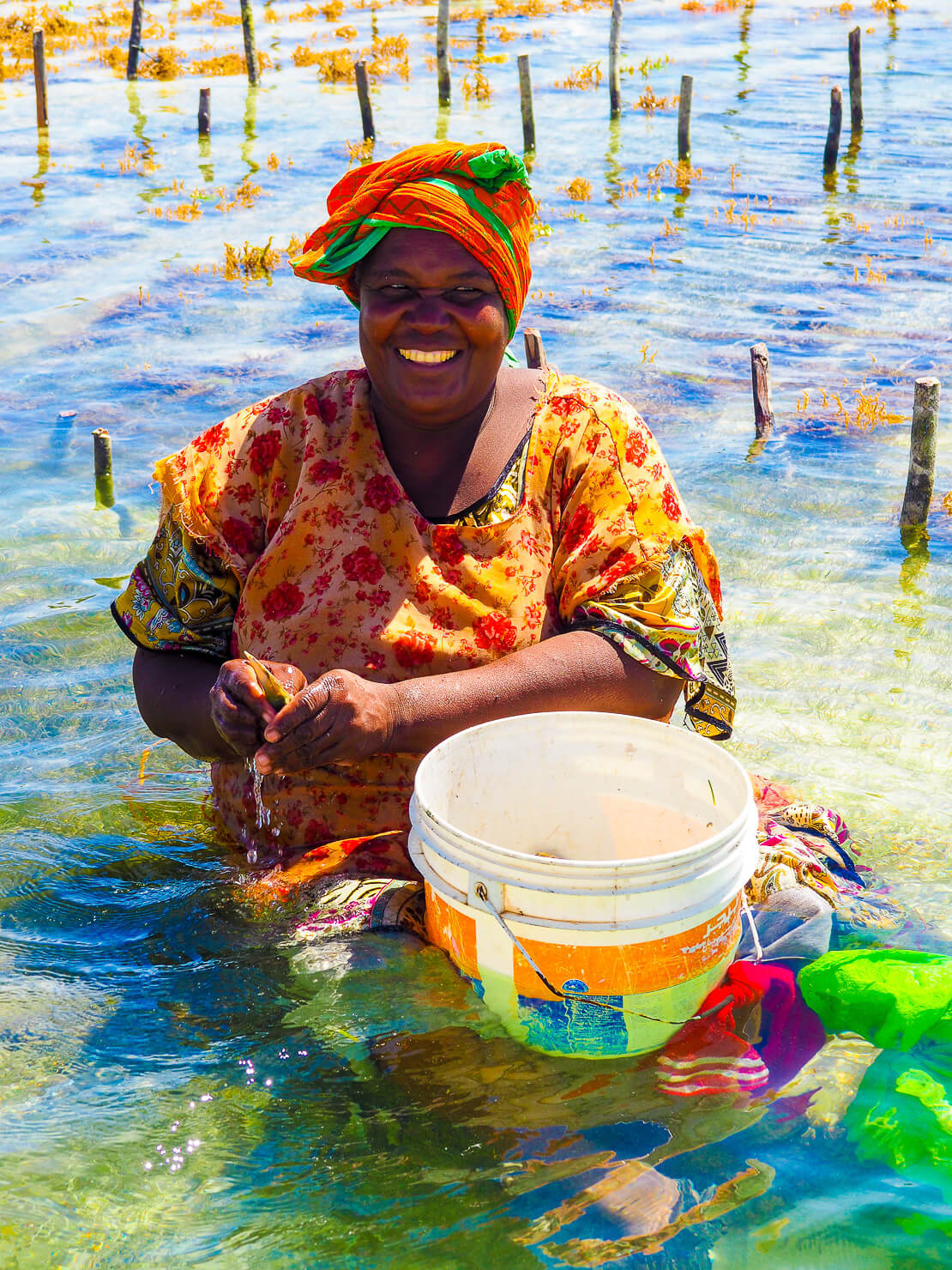
Other Useful Swahili Words & Phrases
- Duka la dawa Pharmacy
- Duka Shop
- Dawa Medicine
- Kesho Tomorrow
- Wapi? Where?
- Liko wapi? Where is the…? (ie. Where is the pharmacy? Duka la dawa liko wapi?)
- Nini/Gani? What?
- Ipi? Which?
- Nani? Who?
- Naipenda I like it
- Sipendi I don’t like it
- Unaipenda? Do you like it?
- Nakupenda I love you
- Pesa Money
- Sina pesa I don’t have money
- Sasa Now
- Kidogo A little (if people ask you if you speak Swahili, say “kidogo” or “kidogo kidogo” and you’ll get a laugh, they love it)
- Pole pole Slowly (pronounced polay polay -useful for saying to speeding bus drivers and for keeping up morale on Kilimanjaro)
- Poa kichizi kama ndizi Crazy cool like a banana (pronounced poa kachezi kamandeezi – this makes people laugh when you say it)
- Rafiki Friend
- Choo Toilet
- Safari njema Good journey
Read More About Tanzania & Kenya…


East Africa Group Tours
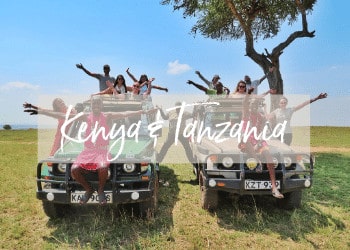
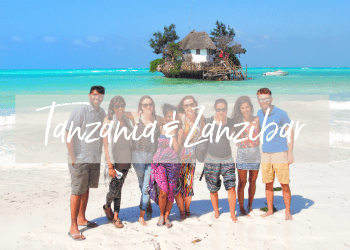
Please Note: Some of the links in this post are affiliate links, which will earn me a small commission at no extra cost to you. Affiliate sales help with the running costs of this site, so thank you for your support!

